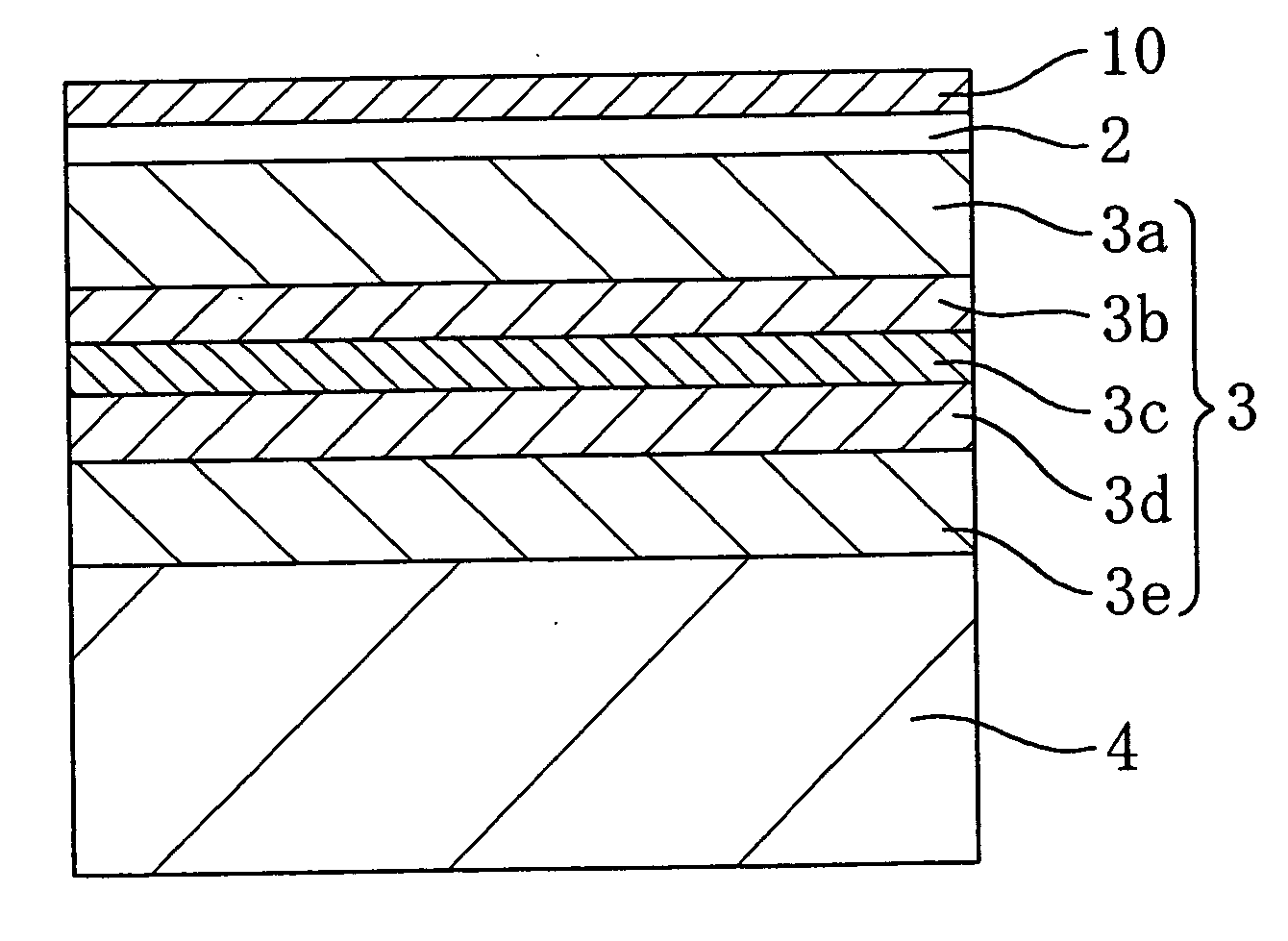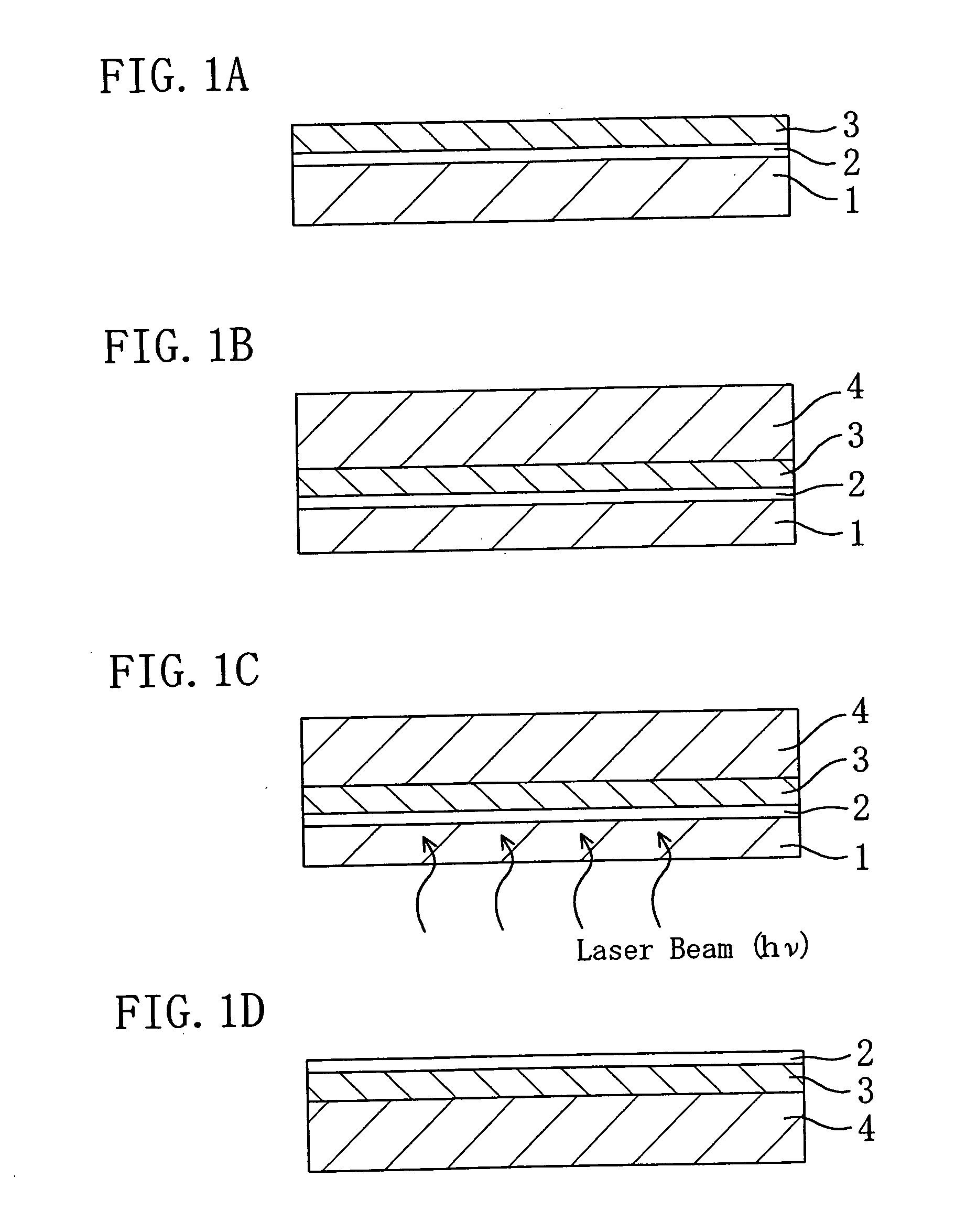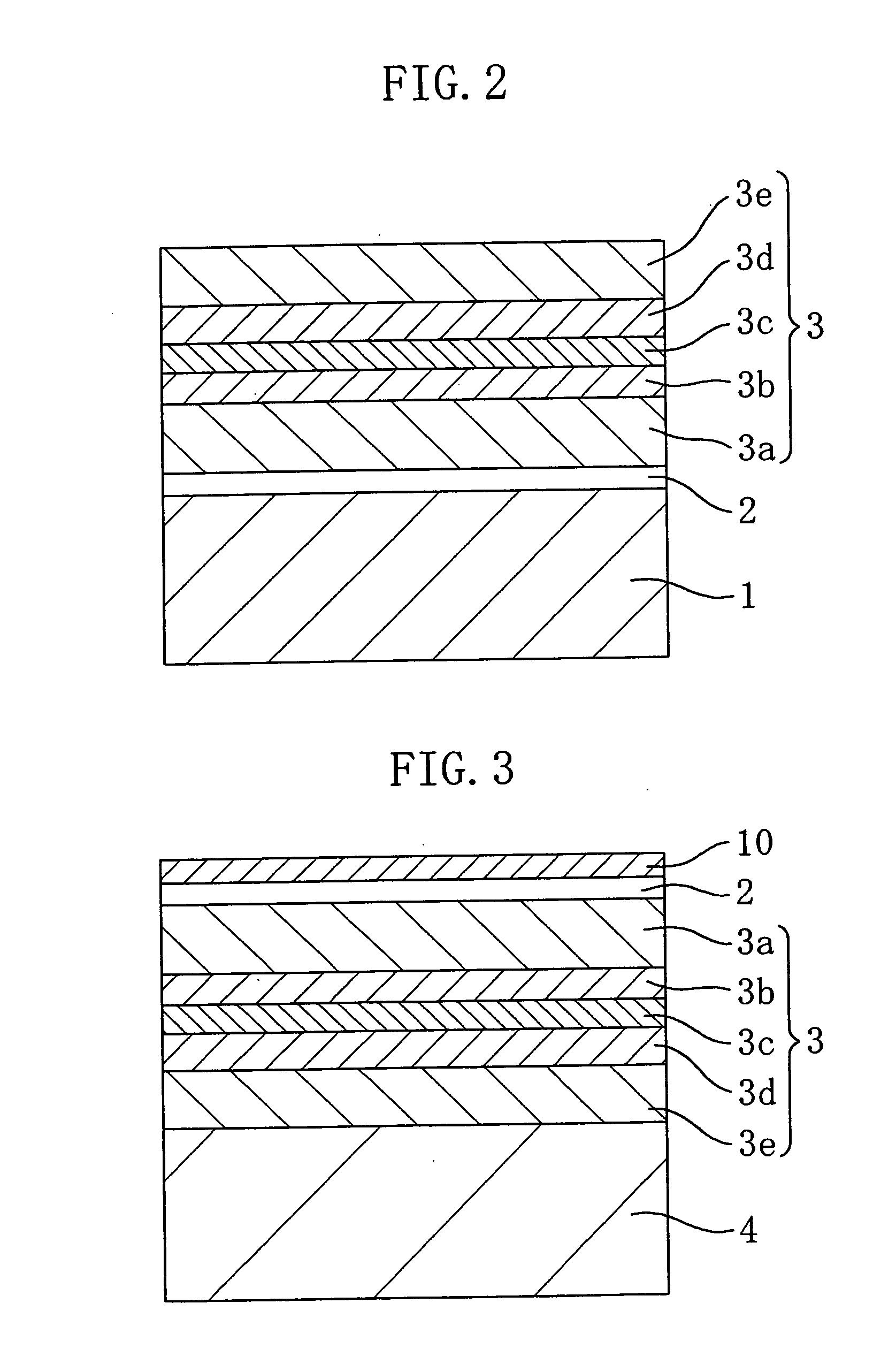Semiconductor device and method for fabricating the same
a semiconductor and device technology, applied in the direction of semiconductor lasers, polycrystalline material growth, crystal growth process, etc., can solve the problems of difficult cleavage of the entire substrate, difficult cleavage, and prevented the formation of satisfactory resonator surfaces
- Summary
- Abstract
- Description
- Claims
- Application Information
AI Technical Summary
Benefits of technology
Problems solved by technology
Method used
Image
Examples
embodiment 1
[0071]FIGS. 1A to 1D are cross-sectional views illustrating a method for fabricating a semiconductor device according to a first embodiment of the present invention. First, in the step shown in FIG. 1A, a sapphire substrate 1 (wafer) having a principal surface substantially coincident with the (0001) plane (c plane) is prepared. Then, a ZnO layer 2 having a thickness of about 100 nm and serving as a spacer layer is formed by, e.g., RF sputtering on the sapphire substrate 1. Subsequently, an epitaxially grown layer 3 (with a thickness of 5 μm) having a multilayer structure including a GaN layer, an AlGaN layer, and an InGaN layer, each of which is of p-type, of n-type, or undoped, is formed on the ZnO layer 2 by metal organic chemical vapor deposition (MOCVD). In the case of fabricating a semiconductor laser, a waveguide structure has been incorporated into the epitaxially grown layer 3 by using a regrowth technique, selective etching or the like.
[0072] Next, in the step shown in FI...
embodiment 2
[0082]FIGS. 5A to 5D are cross-sectional views illustrating a method for fabricating a semiconductor device according to a second embodiment of the present invention.
[0083] First, in the step shown in FIG. 5A, a sapphire substrate 1 (wafer) having a principal surface substantially coincident with the (0001) plane (c plane) is prepared. Then, an In0.1Ga0.09N layer 5 having a thickness of about 30 nm and serving as a spacer layer is formed by, e.g., MOCVD on the sapphire substrate 1. Subsequently, an epitaxially grown layer 3 (with a thickness of 5 μm) having a multilayer structure including a GaN layer, an AlGaN layer, and an InGaN layer, each of which is of p-type, of n-type, or undoped, is formed on the In0.1Ga0.9N layer 5 by MOCVD performed in the same apparatus. In the case of fabricating a semiconductor laser, a waveguide structure has been incorporated into the epitaxial layer 3 by using a regrowth technique, selective etching or the like.
[0084] Next, in the step shown in FIG...
embodiment 3
[0092]FIGS. 7A to 7D are cross-sectional views illustrating a method for fabricating a semiconductor device according to a third embodiment of the present invention.
[0093] First, in the step shown in FIG. 7A, a sapphire substrate 1 (wafer) having a principal surface substantially coincident with the (0001) plane (c plane) is prepared. Then, an In0.1Ga0.9N layer 5 having a thickness of about 30 nm and serving as a spacer layer is formed by, e.g., MOCVD on the sapphire substrate 1. Subsequently, an epitaxially grown layer 3 (with a thickness of 5 μm) having a multilayer structure including a GaN layer, an AlGaN layer, and an InGaN layer, each of which is of p-type, of n-type, or undoped, is formed on the In0.1Ga0.9N layer 5 by MOCVD performed in the same apparatus. In the present embodiment, an Al0.1Ga0.9N layer is formed in direct contact with the In0.1Ga0.9N layer 5. In the case of fabricating a semiconductor laser, a waveguide structure has been incorporated into the epitaxial lay...
PUM
 Login to View More
Login to View More Abstract
Description
Claims
Application Information
 Login to View More
Login to View More - R&D
- Intellectual Property
- Life Sciences
- Materials
- Tech Scout
- Unparalleled Data Quality
- Higher Quality Content
- 60% Fewer Hallucinations
Browse by: Latest US Patents, China's latest patents, Technical Efficacy Thesaurus, Application Domain, Technology Topic, Popular Technical Reports.
© 2025 PatSnap. All rights reserved.Legal|Privacy policy|Modern Slavery Act Transparency Statement|Sitemap|About US| Contact US: help@patsnap.com



